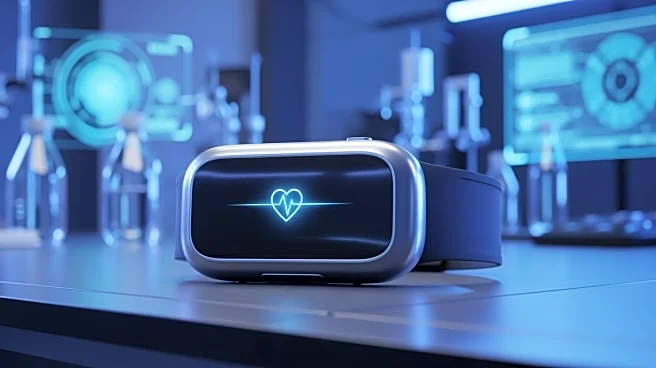What's Happening?
Meta has unveiled the Aria Gen 2, a next-generation augmented reality headset equipped with a PPG heart-rate sensor and contact microphone. This new biometric capability allows research labs to capture physiological signals alongside eye and hand tracking,
raising privacy and consent questions for subjects. The device weighs 75 grams and offers an 8-hour battery life, enabling longer field studies. The addition of biometric sensing transforms AR research from observational to physiological measurement, accelerating study timelines and budgets.
Why It's Important?
The introduction of biometric sensing in AR devices like the Aria Gen 2 marks a significant shift in wearable technology, allowing researchers to conduct more comprehensive studies without separate wearables. This advancement could lead to faster prototyping for accessibility, mental health, and attention tracking studies. However, it also necessitates updates to consent forms and data control measures to protect subjects' privacy, highlighting the need for Institutional Review Boards and corporate privacy teams to adapt to these changes.
What's Next?
As the smart-glasses race heats up, with major players like Apple and Google also pushing new designs, the adoption of wearable AI technology is expected to accelerate. Labs will need to establish secure biometric pipelines and update protocols to handle continuous physiological data capture. The development may prompt regulatory bodies to set new standards for physiological AR data, ensuring subjects' rights are protected.
Beyond the Headlines
The integration of biometric sensors in AR devices raises ethical considerations regarding data privacy and consent. Researchers and institutions must navigate these challenges to ensure responsible use of technology, balancing innovation with ethical obligations.















